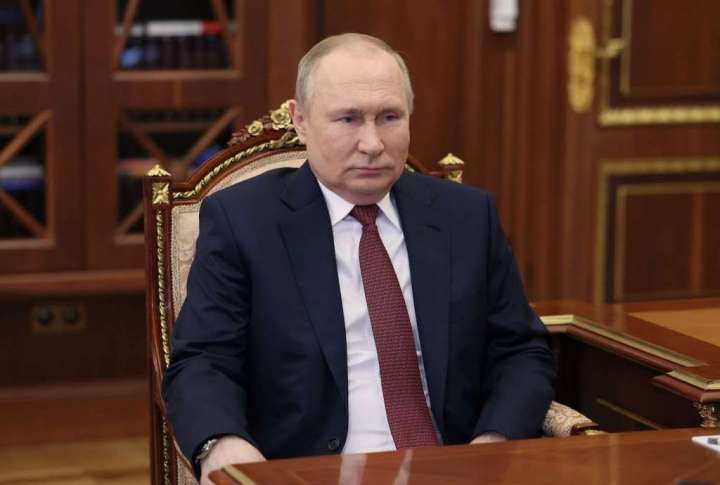Wars end. Many, if not most, end with negotiation. That might be what happens with the war Russia launched against Ukraine on Feb. 24, too, though one former Moscow regime member warns against urging Ukraine to negotiate while President Vladimir Putin is still bent on more conquest. “You just can’t make peace now,” Boris Bondarev, who recently resigned from his mid-level Russian Foreign Ministry post to protest the war, said in an interview with Puck. “If you do, it will be seen as a Russian victory.” That would just encourage the Putin regime to exploit a cease-fire to rearm, then resume the war, Mr. Bondarev argued: “Only a total and clear defeat that is obvious to everyone will teach them.”
Now is not the time to seek a deal with Putin

Mr. Bondarev makes a compelling point. It would be a disaster — both moral and strategic — if Mr. Putin were invited to talks before his major war objectives had been thwarted. Clear enough to a junior practitioner of international affairs, this wisdom seems to escape ostensibly more seasoned figures. Former U.S. secretary of state Henry A. Kissinger said at the World Economic Forum in Davos, Switzerland, that Western governments should push Ukraine into talks with Mr. Putin in the next 60 days, as well as support permanent Ukrainian territorial concessions, lest the conflict turn into a destabilizing “new war against Russia itself.” Similar thinking seems to be at work in Italy and Hungary, which are reportedly urging the European Union to advocate a cease-fire and peace talks at its summit next week. Our colleagues on the New York Times editorial board have called on President Biden to counsel Kyiv not to “chase after an illusory ‘win.’”
This remains a minority view within the Western alliance, and it should be. As European Commission President Ursula von der Leyen made clear at Davos: “Ukraine must win this war, and Putin’s aggression must be a strategic failure.” To be sure, the war is terribly costly — for the whole world. It must end as soon as reasonably possible. Ukrainian President Volodymyr Zelensky has indicated that he will talk with Mr. Putin — as soon as Russia withdraws to the prewar lines, under which it held Crimea and a swath of additional territory. Mr. Zelensky also insists, appropriately, that a false peace would be worse than useless and that premature talk of a settlement must not undercut Ukraine’s military efforts.
As Mr. Kissinger and others rightly note, Moscow has ample means to escalate the war — not least by using nuclear weapons. Yet what’s remarkable about the past three months of war is how little appetite Mr. Putin has actually shown for confrontation with the West. NATO’s red lines, public and private, seem to be holding. Nor does Mr. Putin show signs of interest in a deal such as the one Mr. Kissinger seems to assume he would accept, as opposed to the outright seizure of all Ukraine that Mr. Putin has repeatedly openly pursued.
Perhaps Ukraine’s counteroffensive will fail, and the military situation will eventually reach such an impasse that a negotiated settlement becomes inevitable. For now, though, the best way for Ukraine’s friends to help is to accelerate shipments of vital weaponry — and stop negotiating with themselves.






